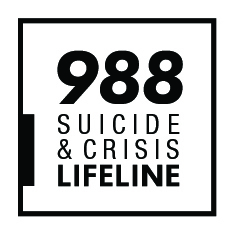One Size Does Not Fit All
Until about a decade ago, West Michigan Community Mental Health (WMCMH) ran Day Programs in which adults with developmental disabilities spent up to five days a week learning life skills and earning money through in-house job programs. All the programming happened within the designated facility. Based on the work they were able to do and the supports they needed, some participants with developmental disabilities (DD) were paid a deviated wage, which is less than minimum wage—a practice that was and still is permitted by law in Michigan.
Mike Nekola, Vocational and Community Supports Team Leader at WMCMH, explained that around 2003, a directive from the State prompted WMCMH to make changes to its Day Programs. In addition to making the required changes, WMCMH seized the opportunity to do a complete overhaul. No longer would everyone receive the same one-size-fits-all, five-days-a-week programming within the four walls of the facility. Instead, each person’s services would be personalized based on their level of need, and daily activities would extend beyond the four walls into the community.
To personalize services, case managers and other staff met with individuals and their families to discuss their needs and their goals, what supports they already had in place, and what additional supports were needed. WMCMH Executive Director Lisa Hotovy explained, “In this process we sometimes find that there are folks out there—not CMH employees—who are ready to support someone as they work or volunteer out in the community. They may not need paid staff all the time.” Those who need the support of paid staff get that support.
WMCMH also re-determined how much each person would work. There’s no special formula for this. Mike said, “We just asked them how much they wanted to work and how much money they wanted to earn.” Around this time, WMCMH began paying minimum wage to the individuals with DD who worked at the gathering sites. The reason, Mike said, was that “it didn’t feel right to pay them less. Paying minimum wage was just the right thing to do.”
In keeping with WMCMH’s mission to help people integrate into their community, about half the programming would now occur outside of the facility. Skills building was now at the state park, the bowling alley, the coffee shop, the grocery store, and anywhere else people go. Those who were able to hold jobs at local businesses such as restaurants or grocery stores were connected with those opportunities, along with ongoing support of a WMCMH job coach as needed. Those who required a greater level of support continued to work at the facility, no longer called a Day Program but now a Gathering Site.
“The families of people with developmental disabilities are a strong advocacy group,” Mike said. “We knew we had to include them in these changes.” So WMCMH held public forums in each county it serves: Lake, Mason, and Oceana. Mike noted that a few were concerned at first, especially those whose family member would be attending the Gathering Site two or three days a week instead of a steady five. However, many family members quickly saw that although their loved one was getting less time, it was better time. Mike said, “Parents would say to me, ‘I don’t know what you’re doing but my child is very happy.’”
Faith Nekola, Deputy Director of Clinical Services, says that the Gathering Site activities are the “best prevention program” for individuals with DD. She explained that DD may limit individuals’ ability to structure their own time with creative, healthy, and productive activities. Without support, folks may experience depression, irritability, and boredom, and develop unhealthy ways of coping.
Mike said that the Gathering Site staff can also see that the people they serve are happier. “They have an enthusiasm about them,” Mike said. “They come back excited to tell you about the camel they saw at Lewis Farms, or that they caught a big fish, or ‘I saw a fire truck,’ ‘I saw my Uncle George,’ or a friend from church. No one says they wish they could spend more time in the building.”
Betsy Reed is the Quality Assurance and Public Relations Coordinator at West Michigan Community Mental Health System.
CONTACT:
Betsy Reed
West Michigan Community Mental Health System
Phone: 231-843-7285
Fax: 231-845-7095
Email: BetsyR@WMCMHS.org
 or
or 